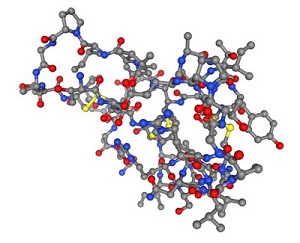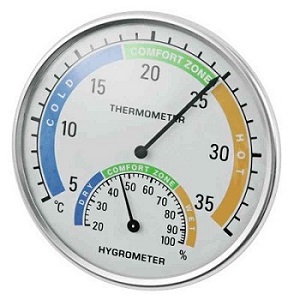Air is composed of various molecules, with a greater
or lesser amount of molecules of water vapour (H2O).
We ourselves are composed of molecules with a movement on our body surface
corresponding to approx. 32 [°C] (90°F).
We are above all sensitive to air temperatures (activity levels of air
molecules) but also to a lesser extent to the greater or lesser presence of the
vapour molecules that it contains.

We can consider our body as an “engine” capable of producing work, but
which has imperatively to evacuate its “thermal losses” otherwise
overheating will result.
While we all know that we can die from cold, it is also as dangerous if we
cannot be “cooled” down. If the temperature of the planet rose to above 50 [°C]
(122°F), our species would not be able to survive.
Note that heat generation or output will increase in relation to the volume of work, or energy, produced by the “engine”. In a sports center for example more heat than normal has to be evacuated.
Question
Why should sports centers not be heated too much?
Normally housing is heated to approx. 20 [°C] (68°F). In sports centers a temperature of 16 [°C] (60°F) could be sufficient.
If the temperature seems a little chilly at the start of the session, this low temperature will help the sportsmen to evacuate their energy by other means than sweating.

The dissipation of our body heat takes place essentially:
- By thermal changes between our skin and the exterior temperature when the air is not too hot.
- By sweat and liquid evacuation when the air temperature is high.
The “system” is very precise, and our body knows when
to produce more or less sweat according to the cooling requirements in addition
to exchange related to temperature differences. Note however, that when it is
cold, a minimal production of “sweat” is necessary to humidify our skin.
Finally we have available a large range of devices to help our thermal balance:
- Clothing
- Drinks
- Food
- Rest or movement
- Activating the air with a fan or ventilator (which helps our sweat or perspiration to evaporate)
- The contraction or expansion of peripheral blood vessels
- Our breathing rhythms
And, of course, shelters from the sun or the cold.
